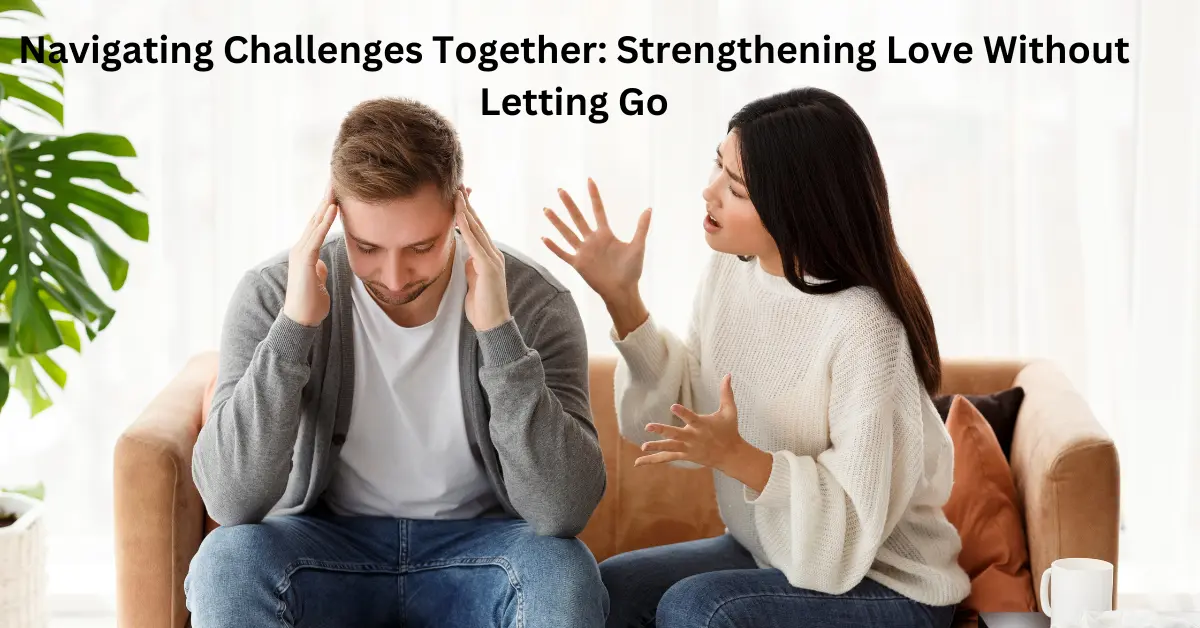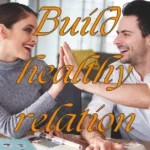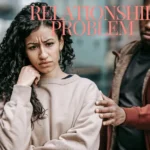Navigating relationship problems can be tough, but breaking up isn’t always the answer. Many couples face challenges, and addressing these issues directly can often strengthen your connection. Dr. Sue Johnson, a respected psychologist and creator of Emotionally Focused Therapy (EFT), emphasizes the importance of emotional connection in resolving conflicts. In this article, we’ll explore how to solve relationship problems without breaking up, providing simple tips and insights that can help you improve your relationship.
Understand How to Solve Relationship Problems Without Breaking Up
Every relationship experiences ups and downs. Some of the most common issues couples face include:
Communication Problems

Miscommunication is one of the leading causes of conflict in relationships. When partners don’t express their feelings clearly, misunderstandings can escalate quickly. For instance, if one partner feels neglected but doesn’t voice it, the other might remain unaware of the issue, leading to frustration on both sides.
Trust Issues
Trust is foundational in any relationship. If one partner has been unfaithful or if there are lingering insecurities, it can create a rift that’s hard to bridge. Trust issues often stem from past experiences, making it vital to address them openly.
Different Life Goals
Sometimes, partners may find that they want different things in life. Whether it’s career ambitions, desire for children, or lifestyle choices, these differences can lead to conflict. When both partners are not on the same page about their future, it can create tension.
Financial Stress
Money can be a significant source of disagreement for many couples. Whether it’s how to spend, save, or invest, financial stress can lead to heated arguments. Understanding each other’s financial perspectives and habits is crucial for maintaining harmony.
The Importance of Addressing Issues
According to research, many couples can resolve these issues without ending their relationship. A study published in the Journal of Marriage and Family found that couples who engage in open discussions about their problems are more likely to stay together. Let’s look at how to solve these problems effectively.
Read More: Top Tips For How To Solve Relationship Problems
How to Solve Problems in Your Relationship
1. Open Communication

Good communication is key to any healthy relationship. When my partner and I faced challenges, we learned that talking openly about our feelings helped us understand each other better. Here are some strategies for effective communication:
Use “I” Statements: This technique helps you express your feelings without sounding accusatory. For example, instead of saying, “You never listen to me,” try, “I feel unheard when you’re on your phone during our conversations.”
Choose the Right Time: Timing can make a big difference in how your message is received. Avoid bringing up sensitive topics when either of you is stressed or busy. Instead, find a calm moment to talk.
Stay Calm: It’s easy for discussions to turn into arguments, but staying calm can help maintain a constructive atmosphere. If emotions start to escalate, take a break and revisit the conversation later.
2. Identify Underlying Issues
Surface problems often mask deeper issues. For instance, you might argue about chores, but the real concern could be feelings of neglect or lack of appreciation.
Self-Reflection: Take time to think about what’s truly bothering you. Ask yourself why certain issues make you feel the way they do. This self-awareness can help you articulate your feelings better.
Engage Your Partner: Encourage your partner to share their thoughts and feelings. This creates an open dialogue that can reveal underlying concerns that need to be addressed.
3. Practice Active Listening
Active listening means really paying attention to what your partner is saying. This helps them feel heard and understood.
How to Practice Active Listening:
- Make Eye Contact: This shows you are engaged and focused on the conversation.
- Reflect Back: After your partner speaks, paraphrase what they said to confirm your understanding. For example, “So what I hear you saying is that you feel overwhelmed with the chores.”
- Avoid Interrupting: Let your partner finish their thoughts before responding. This shows respect for their perspective.
4. Set Mutual Goals
Having shared goals can bring you closer together. For example, my partner and I set a goal to save for a vacation. Working toward a common goal helps create teamwork in the relationship.
Sit Down Together: Discuss what you both want for the future. Whether it’s travel, financial stability, or family planning, having common goals creates a sense of partnership.
Regular Check-Ins: Periodically assess your progress toward these goals. This not only keeps you on track but also allows for adjustments as needed.
5. Compromise and Negotiate
Every relationship requires some give and take. Compromise means finding a middle ground where both partners feel respected.
Finding Balance: If one partner wants to go out with friends while the other prefers a quiet night in, brainstorm ways to satisfy both needs. Perhaps a compromise could be to spend one night out and the next at home together.
Be Open to Change: Compromise often involves change. Be willing to adapt and find new solutions that work for both of you.
When to Seek Professional Help
Sometimes, problems can feel too big to handle alone. This is where a therapist can help.

Recognizing When You Need Support
If you’re constantly fighting or feeling unhappy, it might be time to seek help. A therapist can provide tools and strategies to improve your relationship.
Expert Advice: Dr. Sue Johnson suggests that couples therapy can help partners understand each other’s emotional needs better and rebuild trust. A neutral third party can facilitate communication and offer guidance.
Creating a Safe Space for Discussion
Going to therapy together creates a structured environment where both partners can talk openly about their feelings and concerns.
Finding the Right Therapist: Look for someone who specializes in couples therapy and aligns with your values. Many therapists offer initial consultations to see if it’s a good fit.
How to Cope with a Breakup You Don’t Want
If you find that breaking up seems inevitable, it’s essential to take care of yourself.

1. Acknowledge Your Feelings
It’s normal to feel sad or confused. Allow yourself to grieve the relationship. Journaling can be a great way to process your emotions and clarify your thoughts.
2. Seek Support
Talk to friends or family who can offer comfort and perspective. Sometimes, just having someone to listen can make a huge difference.
3. Focus on Self-Care
Engage in activities that make you happy. This could be exercise, hobbies, or spending time with loved ones. Taking care of yourself is crucial during tough times.
Explore New Interests: Trying something new can help distract you from negative feelings. Whether it’s joining a class or picking up a hobby, new experiences can boost your mood.
When to End a Relationship
Sometimes, despite your best efforts, it might be clear that a relationship isn’t working.

Signs That It Might Be Time to Break Up
- Persistent Unhappiness: If you feel unhappy most of the time, despite trying to fix things.
- Inability to Resolve Conflicts: If you find yourselves arguing without finding a solution.
- Lack of Mutual Respect: If you or your partner are disrespectful towards each other.
How to End a Relationship with Someone You Love
If you decide to break up, try to do it kindly. Be honest about your feelings and the reasons for your decision.
Plan the Conversation: Choose a private and calm setting to discuss the breakup. Prepare yourself for a range of emotions, both yours and your partner’s.
Be Respectful: Regardless of the reasons for the breakup, maintain respect for your partner. Acknowledge the good times and express gratitude for the relationship.
Accepting That Your Relationship Is Over

1. Allowing Yourself to Grieve
Feeling sad after a breakup is normal. Give yourself time to process these feelings. It’s okay to cry, reminisce, and feel a sense of loss.
2. Finding Closure
Consider writing a letter to your partner expressing your thoughts and feelings. You don’t have to send it; writing it down can help you find closure.
3. Embracing New Beginnings
Focus on what’s next. Setting new personal goals can help you move forward positively. Whether it’s travel, career, or personal development, finding a new purpose can provide motivation.
Conclusion
Dealing with relationship problems doesn’t always mean breaking up. By practicing open communication, identifying underlying issues, and seeking support when needed, couples can often find ways to strengthen their bond. Remember, every relationship has its ups and downs, and how you navigate these challenges can make all the difference. Embrace the journey and remain committed to growing together, and you may find that your relationship can flourish even in tough times.
Disclaimer: I am not a relationship expert. The information in this article comes from my own experiences and insights. For professional guidance, it’s best to consult a qualified relationship counselor or therapist.
FAQ
Q: How do I solve a relationship problem without breaking up?
A: To solve relationship problems without breaking up, focus on open communication, identify underlying issues, practice active listening, set mutual goals, and be willing to compromise.
Q: What are the common signs that a relationship is in trouble?
A: Common signs include frequent arguments, feeling unappreciated, loss of intimacy, lack of communication, and persistent unhappiness.
Q: When should I seek professional help for my relationship?
A: Consider seeking professional help if you find it difficult to resolve conflicts, if issues are recurring despite your efforts, or if you feel disconnected from your partner.
Q: How can I cope with a breakup I don’t want?
A: Allow yourself to grieve, seek support from friends and family, and focus on self-care activities to help navigate your emotions.
Q: What should I do if I feel my partner is not listening to me?
A: If your partner isn’t listening, calmly express how it makes you feel and ask for their attention during important conversations. Open, respectful communication can help strengthen your connection and resolve misunderstandings.










